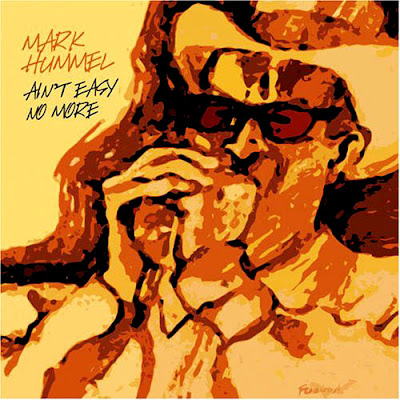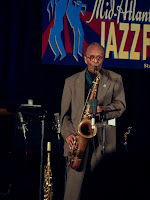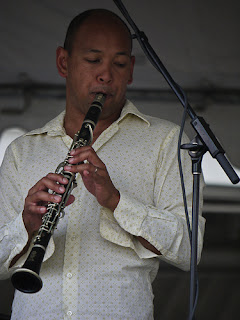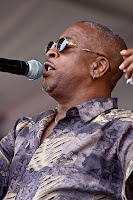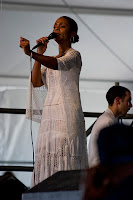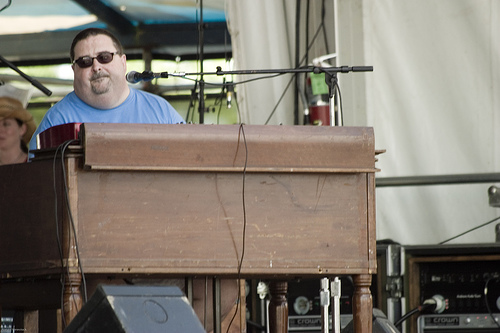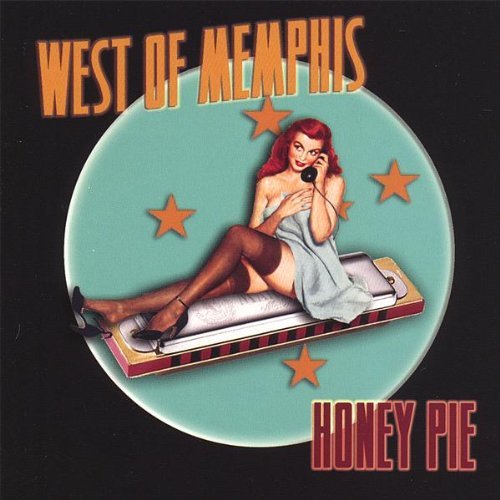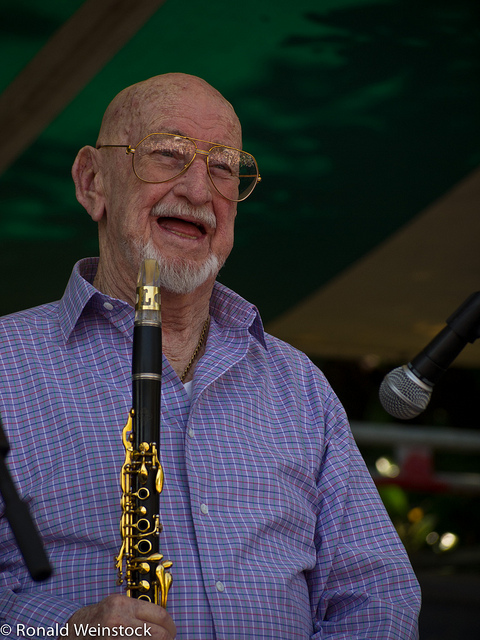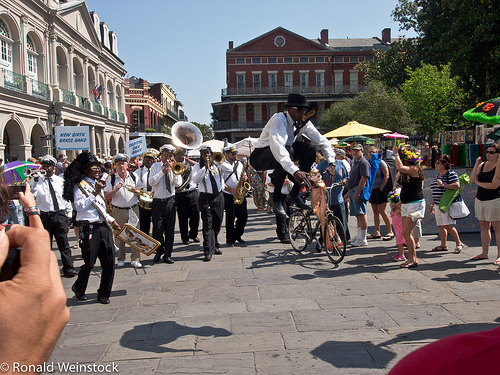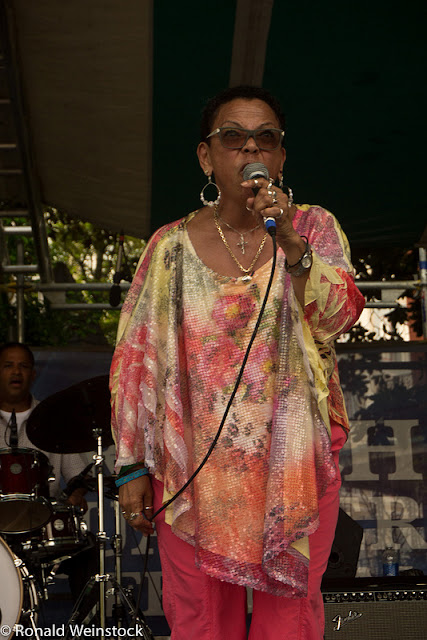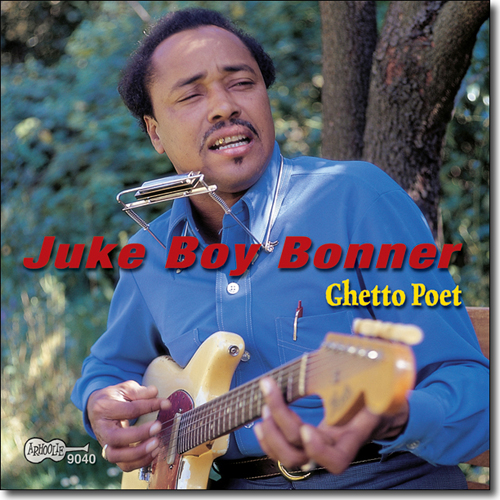Now over fifty years after Broonzy’s passing, Billy Boy has recorded a tribute album, Sings Big Bill Broonzy on Electro-Fi. It is produced by Eric Noden who plays acoustic guitar and others supporting Billy Boy are Billy Flynn on electric guitar and mandolin, Beau Sample on acoustic bass and Rick Sherry on washboard, percussion and clarinet. The 15 songs, all written by Broonzy, selected were recorded between the late 1930s and the early 1950s.
Bob Riesman in his liner notes that they attempt to play in the spirit of Broonzy’s work, rather than recreate the recordings. The lack of piano as well as Billy Boy’s harmonica helps to insure that. Arnold’s vocals also do not possess the ebullient quality that Broonzy brought to his recordings (the late John Cephas was one of the few singers of the past few years who had a comparable vocal style), but then again Muddy Waters’ vocals also lacked Broonzy’s good-natured exuberant quality when he recorded his Broonzy tribute shortly after Broonzy’s passing.
There is the lament of Sweet Honey Bee followed by the lively, relaxed swing of Going Back To Arkansas where Sherry contributes washboard and clarinet to help contribute a flavor of some of the Broonzy-Washboard Sam collaborations. Arnold added additional lyrics to the nice slow blues, Girl In The Valley a.k.a. Water Coast Blues, with Sherry again adding washboard while Flynn contributes mandolin in support. Key to the Highway is among the best known songs heard here and done quite strongly with some nice guitar in the backing.
These performances do also highlight Broonzy’s gift at crafting sophisticated songs with irony and wit in his expression of the blues, analogizing to a rooster in Looking Down At Me, or take the voice of a prisoner in Cell No. 13 Blues. The rendition of the former song is done in the fashion that Sonny Boy Williamson might have performed the song with a nice harmonica break. There is the mix of the contemporary and traditional in I Want You By My Side, that adapts the melody of Careless Love, and has a crisp Billy Flynn guitar solo.
The easy swing is also present when Billy Boy sings about Living On Easy Street, where he tells women if you want money get your man on the WPA but if you want good loving you got to do what I say. When I Get To Thinkin’, is nicely reworked and a bit more laid back than the Muddy Waters more emphatic 1960 recording that is a bit more threatening towards his lover. Arnold also provides his own spin to Broonzy’s fanciful It Was Just a Dream with its surrealistic imagery has been revived and reworked by a number of bluesman, most notably the late Louisiana Red, as he sings about waking up in the White House and the President shaking Bill’s hand.
This recording was heralded in Bob Riesman’s Broonzy biography, and its release has met the expectations for it. Today, one might find it hard to appreciate how significant Big Bill was in the history of the blues. Along with Riesman’s book, this tribute recording addresses that in a fine and spirited manner.
I was provided my review copy from the label. Here is a video clip of the legendary Big Bill Broonzy.
Here is Billy Boy Arnold doing a Sonny boy Williamson number.




